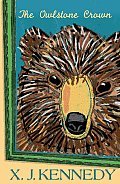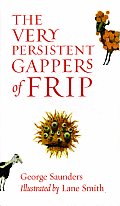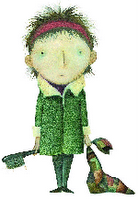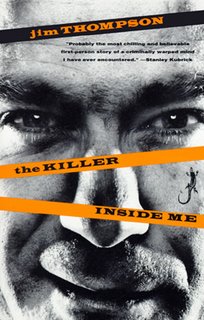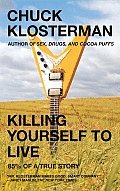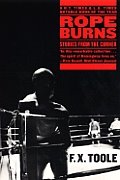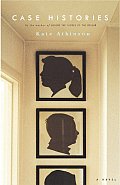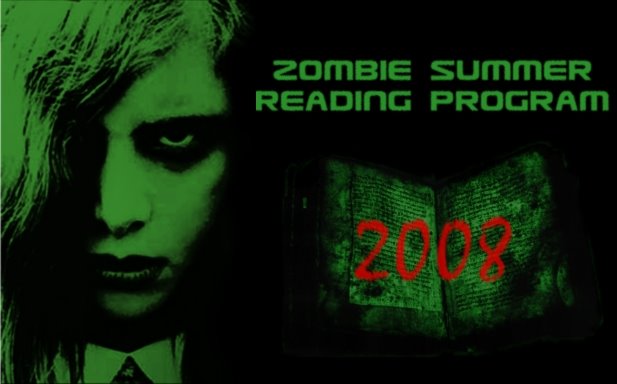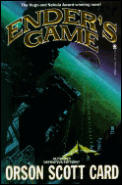 Ender's Game
Ender's Game by Orson Scott Card
"General Levy has no pity for anyone. All the videos say so. But don't hurt this boy."
"Are you joking?"
"I mean, don't hurt him more than you have to."MM: When I began the "Great Science Fiction Odyssey of 2006," Brady was like, "Ooh, ooh, ooh. This one, this one." And having not been led astray by him with Isaac Asimov, I took it. And the next few days are kind of a blur. I read this book on the bus, while eating dinner, and really, any moment that I was not otherwise engaged in paid labor or unconsciousness.
To sum up, a generation or two before our story begins, an alien race (known throughout the book as 'buggers') darn near wiped out earth, and the only thing that prevented its utter annihilation was the quick-thinking action of a young fleet commander named Mazer Rackham (truly a name worthy of
Airwolf). The leaders of Earth know they got incredibly lucky with Rackham, and immediately set about preparing an elite command for the next invasion. They monitor small children, plucking up the ones that show an aptitude for military leadership, and ship them off to Battle School, where they spend a few years leading platoons and zapping each other with freeze rays in zero gravity war scenarios.
As you might imagine, this can really mess a little kid up. Some of the kids rise to the occasion, some are broken beyond repair, and some become psychotic little monsters. Enter Ender.
BP: Ender is kind of a eugenics Goldilocks. His parents, having good genes, were - depite an overpopulation problem - allowed to have 3 kids. Their first, Peter, was too psychotic. Their second, Valentine, was too kind. Ender, on the other hand, is juuuust right. They figure this out when, having been hit by a bully, Ender knocks him flat and then beats him to a pulp
while he is down. Peter would have killed him, Valentine would have turned the other cheek, but Ender knew that preventing further reprisals meant dirty pool, as it were. What makes Ender sympathetic is that knows that, even though he was (tactically) right he also knows that he was wrong to do it.
The majority of the book is taken up with Ender's time in Battle School, where he is jumped through hoop after hoop. You'd think this would get boring, but it doesn't. On the one hand, Ender is such a strategist that it's hard to imagine him losing a scenario. On the other hand, the fate of the human race is at stake and his officers stoop to unbelievable depths to try and humiliate, defeat, and break
a six year old. Ender makes friends? Turn them against him. Ender wins scenarios? Change the rules. Ender still wins and gets respect? Use it to isolate him. By the time he's ten, and shipped off to Command School, Ender is edging towards the kind of stoic loneliness and isolation of world savior types like, say, a fully grown Superman.
MM: Sometimes it's easy to forget that Ender's just a little boy, much younger, yet somehow much more together than Peter Parker ever managed to be. But even though Ender's brain is pretty much adult from the beginning, Card still manages to trace his maturation, charting some kind of childhood development for a childhood that has certainly never existed. Watching Ender grow up is one of the best - and most tragic- things about the book.
As Brady mentioned, the non-stop war room scenarios should get tedious, but don't. This is because, on top of the increasing inventiveness of each series of battle tactics, there's also a side plot on Earth, involving the seriously creepy Peter and the logical, yet emotional Valentine (imagine if Hermione was a Vulcan). I won't tell you much, but the side plot later ties in rather importantly to the larger story, and it involves a pair of adolescents hatching a plan for world domination. They're Ender's siblings... so you know they'll probably come up with something interesting.
BP: To say more would be criminal, as there are a few late in the game twists that ratchet up the emotional heft of Ender's plight without sacrificing the momentum of the plot. Though I figured out relatively quickly that Verbal Kent was Keyzer Soze and that Bruce Willis had already taken the big dirt nap, I had to backtrack a few pages in several cases: the text had me reading so fast I did the mental equivalent of a double-take, and then had to go back and make sure I hadn't misread something.
After the last "Mary Meets The Spacemen," Mary remarked that it was a shame that some people respond to stories like these by saying they're too far-fetched, or not real enough. My response was "Yeah, because that family in
The Corrections really existed." But if I had to locate this book in the realm of more ostensibly realist fiction, I'd call it a boarding school coming-of-age: something like
A Separate Peace, or maybe even Ferrol Sams's
The Whisper of the River, with a dash of
Lord of the Flies thrown in.
And spaceships.
 The Overachievers: The Secret Lives of Driven Kids by Alexandra Robbins
The Overachievers: The Secret Lives of Driven Kids by Alexandra Robbins